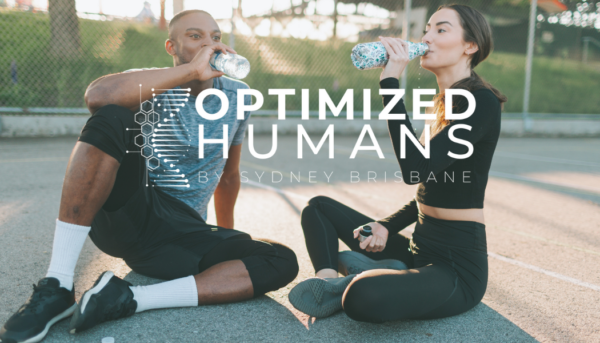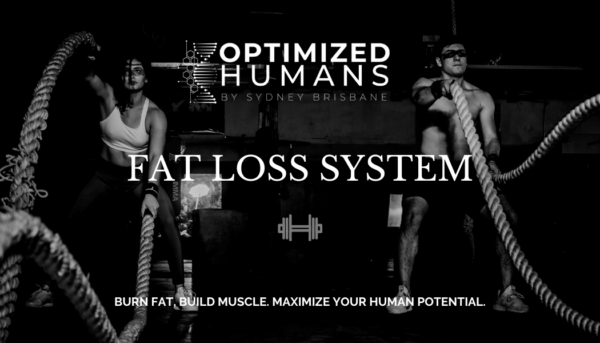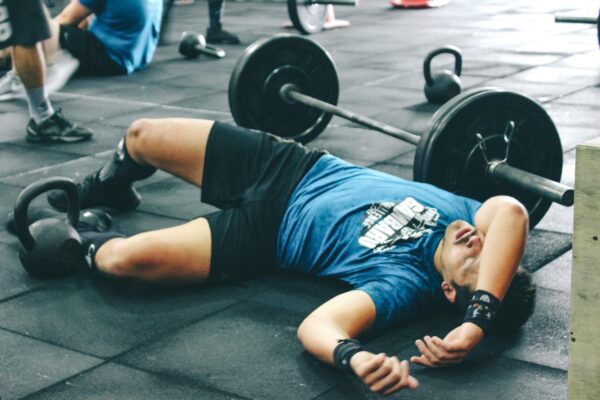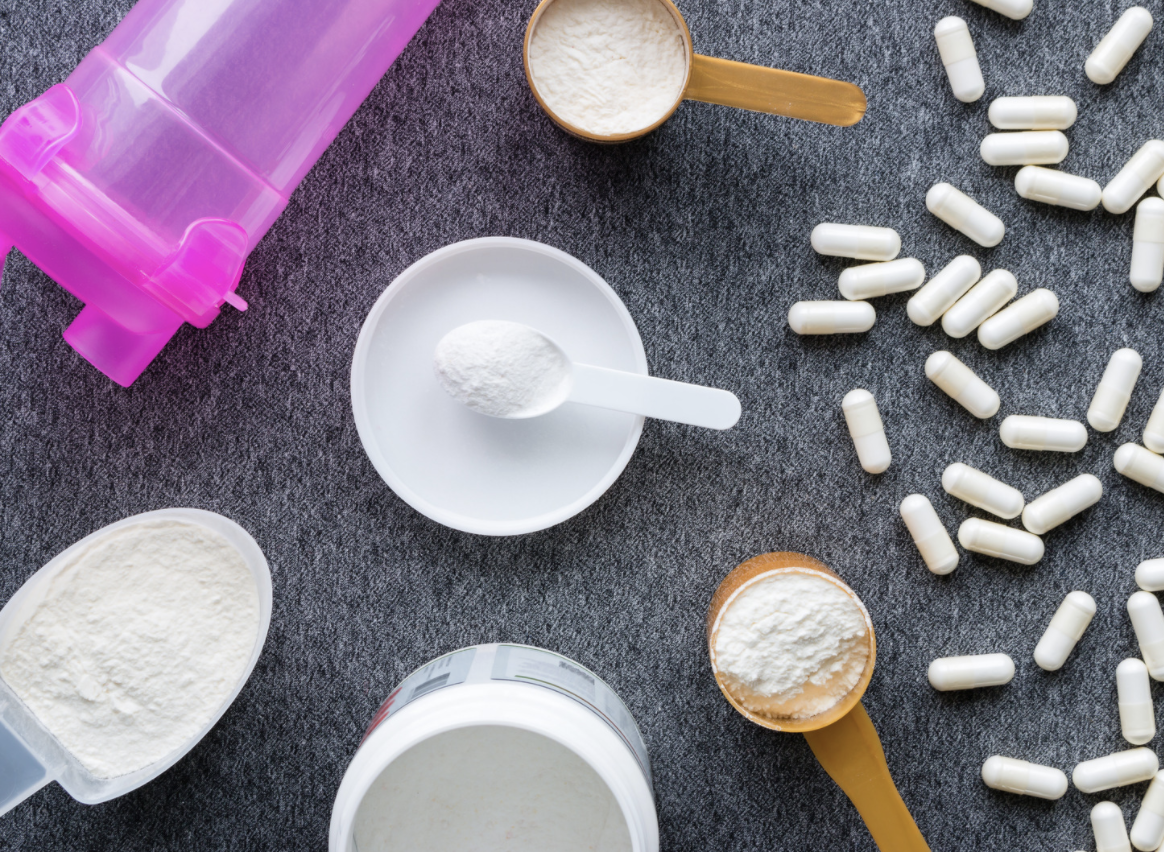
As the summer sun blazes, your workouts might feel more intense, and your body will undoubtedly work harder. Proper post-workout recovery becomes even more crucial during hot weather to ensure your body recovers efficiently and remains injury-free. The Optimized Humans program offers expert advice and resources to help you optimize your recovery. Here are the best practices for post-workout recovery in hot weather, including stretching routines and nutrition tips available in our program.
Hydration is Key
One of the most important aspects of recovery, especially in hot weather, is staying hydrated. Your body loses more fluids through sweat, so replenishing these is essential.
1. Rehydrate Immediately: Drink plenty of water immediately after your workout. Aim for at least 16-24 ounces of water within the first 30 minutes post-exercise.
2. Electrolyte Balance: Consuming drinks with electrolytes can help replenish lost salts and minerals. Consider coconut water or specially formulated electrolyte drinks.
3. Monitor Your Hydration: Check the color of your urine; a pale yellow indicates proper hydration, while darker urine suggests you need to drink more fluids.
Effective Cooling Down
Cooling down helps bring your heart rate back to normal and prevents muscle stiffness. The Optimized Humans program offers guided cool-down routines to ensure you recover properly.
1. Gradual Cool-Down: Spend at least 5-10 minutes walking or performing low-intensity movements to gradually reduce your heart rate.
2. Static Stretching: Incorporate static stretches targeting the major muscle groups you worked during your exercise. Hold each stretch for 20-30 seconds to improve flexibility and reduce muscle tension.
3. Deep Breathing: Practice deep breathing exercises to promote relaxation and aid in the recovery process. This helps lower your heart rate and can reduce post-workout stress.
Stretching Routines for Optimal Recovery
Stretching is a crucial part of the recovery process, especially after intense workouts in hot weather. The Optimized Humans app includes comprehensive stretching routines designed to enhance recovery.
1. Full-Body Stretch Routine: Focus on a full-body stretching routine that targets all major muscle groups. This can help improve flexibility, reduce muscle soreness, and prevent injuries.
2. Yoga and Mobility Work: Incorporate yoga and mobility exercises to enhance your recovery. These practices help improve joint mobility, reduce muscle stiffness, and promote relaxation.
3. Foam Rolling: Use a foam roller to release muscle tension and improve blood flow to your muscles. The app provides guided foam rolling exercises for different muscle groups.
Nutrition for Recovery
What you eat after your workout plays a significant role in your recovery. The Optimized Humans program offers personalized nutrition plans to help you refuel and repair your body.
1. Protein Intake: Consume a protein-rich snack or meal within 30-60 minutes post-workout to support muscle repair and growth. Options include protein shakes, Greek yogurt, or a turkey sandwich.
2. Carbohydrates for Energy: Pair your protein with carbohydrates to replenish glycogen stores and provide energy for recovery. Good options include fruits, whole grains, and vegetables.
3. Healthy Fats: Include healthy fats in your post-workout meal to support overall recovery and reduce inflammation. Avocados, nuts, and olive oil are excellent choices.
4. Antioxidant-Rich Foods: Consume foods rich in antioxidants to combat oxidative stress caused by intense exercise. Berries, leafy greens, and nuts are great options.
Rest and Sleep
Adequate rest and quality sleep are essential for optimal recovery. The Optimized Humans program provides tips and techniques to improve your sleep hygiene.
1. Prioritize Sleep: Aim for 7-9 hours of sleep each night to allow your body to recover fully. Sleep is when your body repairs muscles, consolidates memory, and releases growth hormones.
2. Create a Relaxing Environment: Ensure your sleep environment is cool, dark, and quiet. Consider using blackout curtains, earplugs, or a white noise machine to enhance sleep quality.
3. Consistent Sleep Schedule: Maintain a consistent sleep schedule by going to bed and waking up at the same time each day, even on weekends.
Conclusion
Recovering properly after workouts, especially in hot weather, is essential to maintain your fitness progress and overall well-being. By following these best practices for hydration, cooling down, stretching, nutrition, and rest, you can optimize your recovery and continue to perform at your best. The Optimized Humans program is here to support you with personalized recovery plans, expert advice, and comprehensive resources. Embrace these recovery techniques to stay healthy, energized, and ready for your next workout, no matter how high the temperature rises.
Exclusive Deal For You!
Unlock your potential with a complimentary 14-day trial of our #OptimizedHumans program! 🚀 Dive into customized workouts, expert guidance, and transformative resources designed to enhance your physical and mental well-being. 💪 Join hands with Sydney and our dedicated team to embark on a personalized fitness journey tailored just for you. Together, we’ll optimize your health and set you on the path to success. Plus, discover how we collaborate with companies to boost employee efficiency through tailored workout and nutrition plans. Don’t wait any longer—start your journey to optimal living today at optimizedhumans.life!

Summer is the perfect time to ramp up your fitness routine, take advantage of the beautiful weather, and work towards your health goals. Whether you’re looking to get in shape, stay active, or try new workouts, the Optimized Humans program offers the tools and guidance you need to maximize your summer fitness routine. Here’s how you can leverage the personalized workouts and features available in the Optimized Humans app to stay fit and motivated all summer long.
Personalized Workouts Tailored to Your Goals
One of the standout features of the Optimized Humans program is the ability to create personalized workout plans tailored to your individual goals. Whether you’re aiming to lose weight, build muscle, improve endurance, or simply maintain your current fitness level, the app offers a variety of workouts designed to meet your specific needs.
1. Customizable Plans: The app allows you to set your fitness goals and preferences, creating a workout plan that fits your schedule and interests. Whether you prefer strength training, cardio, HIIT, or a mix of everything, Optimized Humans has you covered.
2. Adaptive Workouts: The app adjusts your workout intensity based on your progress, ensuring you are continually challenged and making improvements. This adaptive approach helps prevent plateaus and keeps your fitness journey exciting.
3. Variety of Exercises: With a vast library of exercises and routines, you’ll never get bored. From yoga and Pilates to high-intensity interval training and weightlifting, the app offers something for everyone, catering to all fitness levels and interests.
Outdoor and Home Workouts
Summer is the ideal time to take your workouts outdoors. Optimized Humans provides a range of outdoor workout options that can be easily integrated into your fitness routine.
1. Outdoor Fitness Routines: The app features guided outdoor workouts such as running, cycling, and bodyweight exercises that can be performed in parks, beaches, or your backyard. Enjoy the fresh air and sunshine while staying active.
2. Home Workouts: If you prefer working out at home, Optimized Humans offers numerous routines that require minimal to no equipment. These workouts are perfect for days when you want to stay indoors or if you’re traveling and don’t have access to a gym.
3. Location-Based Recommendations: The app can suggest nearby parks, trails, and outdoor fitness spots, making it easier for you to find the perfect location for your workout.
Track Your Progress and Stay Motivated
Staying motivated is key to maintaining a consistent fitness routine, and Optimized Humans provides several features to help you stay on track.
1. Progress Tracking: The app allows you to track your workouts, monitor your progress, and set new goals. Visualizing your improvements can be incredibly motivating and help you stay committed to your fitness journey.
2. Personalized Feedback: Receive real-time feedback and tips from virtual trainers based on your performance. This personalized guidance ensures you’re performing exercises correctly and efficiently.
3. Community Support: Connect with other users through the app’s community features. Share your achievements, participate in challenges, and find workout buddies to keep you motivated and accountable.
Nutrition Guidance and Meal Planning
A well-rounded fitness routine includes not only exercise but also proper nutrition. Optimized Humans offers nutritional guidance and meal planning features to complement your workouts and help you achieve your health goals.
1. Personalized Meal Plans: Based on your dietary preferences and fitness goals, the app provides customized meal plans and recipes to fuel your body with the right nutrients.
2. Nutritional Tracking: Keep track of your daily food intake, monitor your macros, and ensure you’re meeting your nutritional needs. The app makes it easy to stay on top of your diet and make healthier choices.
3. Healthy Summer Recipes: Discover delicious and nutritious summer recipes that are easy to prepare and perfect for the season. From refreshing smoothies to light salads, the app offers a variety of options to keep your diet exciting and wholesome.
Conclusion
Maximizing your summer fitness routine is effortless with the Optimized Humans program. By leveraging the personalized workouts, outdoor and home fitness options, progress tracking, and nutritional guidance, you can stay fit, motivated, and healthy all summer long. Download the Optimized Humans app today and start your journey towards a more active and fulfilling summer. Embrace the season with a renewed focus on your fitness goals and let Optimized Humans be your partner in achieving them.

In the ever-evolving landscape of fitness, the pursuit of a healthier lifestyle has transcended the traditional realms of intense workouts. This blog delves into the transformative journey of the fitness industry, highlighting the growing importance of recovery and wellness services. Beyond the sweat-drenched workouts, a new era is emerging—one that embraces a holistic approach to well-being.
Rethinking Fitness: A Holistic Perspective
Gone are the days when fitness was synonymous with grueling workouts and sweat-soaked gym sessions. The evolving mindset of fitness enthusiasts is steering towards a holistic perspective that encompasses physical, mental, and emotional well-being. The realization that recovery is not just a post-workout necessity but a fundamental aspect of a healthy lifestyle is reshaping the fitness narrative.
The Role of Recovery in Performance Enhancement
While challenging workouts remain crucial for physical fitness, the focus is shifting towards what happens after the sweat session. Recovery is now recognized as a key element in performance enhancement. Athletes and fitness enthusiasts are exploring innovative recovery techniques to optimize their training results, reduce the risk of injuries, and promote long-term sustainability in their fitness journeys.
Personalized Recovery Plans
As the understanding of individual variability in recovery needs grows, the fitness industry is moving towards personalized recovery plans. Tailoring recovery strategies to individual preferences, body types, and fitness goals ensures a more targeted and effective approach. From customized recovery nutrition plans to specific recovery modalities, the emphasis is on providing personalized solutions for each individual.
Integration of Technology in Recovery
Technology is playing a significant role in revolutionizing the recovery aspect of fitness. Wearable devices, fitness apps, and smart recovery tools are empowering individuals to track their recovery progress, monitor vital indicators, and make informed decisions about their wellness routines. This integration of technology fosters a more data-driven and efficient approach to recovery.
Recovery Beyond Physical: Mental and Emotional Well-being
The evolution of fitness now acknowledges that well-being goes beyond physical health. Mental and emotional well-being are gaining prominence as essential components of a holistic fitness journey. Practices such as meditation, mindfulness, and stress management are becoming integral to recovery routines, promoting a balanced and resilient mindset.
Holistic Wellness Centers: A Hub for Comprehensive Well-being
The rise of holistic wellness centers signifies a shift from traditional gyms to comprehensive well-being hubs. These centers offer a spectrum of services, including recovery modalities, fitness classes, mental health resources, and nutritional guidance. They provide a one-stop destination for individuals seeking a well-rounded approach to their health and fitness.
Community and Support in Holistic Fitness
The evolving fitness landscape is fostering a sense of community and support. Whether through fitness classes, online forums, or social media groups, individuals are connecting to share their experiences, challenges, and triumphs in their holistic fitness journeys. This sense of community serves as a motivational force, encouraging individuals to prioritize their well-being in a supportive environment.
Paradigms and Transcendents
The evolution of fitness is a dynamic journey that transcends the limitations of traditional workout paradigms. Embracing recovery and wellness services as integral components of a holistic fitness approach paves the way for a more sustainable and fulfilling health journey. Beyond the sweat, fitness enthusiasts are discovering the transformative power of recovery, not just for physical performance but for fostering a balanced and thriving life. The future of fitness is one that goes beyond the gym floor, incorporating recovery and wellness as pillars of a comprehensive and holistic well-being strategy.
Embarking on a journey towards optimal health involves more than just a one-size-fits-all approach. Different life stages bring unique nutritional needs, and supplements can play a vital role in supporting overall well-being. In this blog, we explore a lifelong guide to supplements, tailored for every stage of life.
- Childhood: Laying the Foundation
During childhood, the emphasis is on growth, development, and building a strong foundation for a healthy future. Key supplements include:
– Multivitamins: Ensure a comprehensive intake of essential vitamins and minerals crucial for growth.
– Vitamin D and Calcium: Support bone development and overall skeletal health.
– Omega-3 Fatty Acids: Aid in cognitive development and support brain health.
- Adolescence: Navigating Growth Spurts and Hormonal Changes
As adolescents undergo rapid growth and hormonal changes, their nutritional needs evolve. Supplements to consider include:
– Iron: Particularly important for girls, as iron needs increase with the onset of menstruation.
– B-Complex Vitamins: Support energy metabolism during periods of increased activity.
– Vitamin C: Enhance iron absorption and support immune function.
- Young Adulthood: Balancing Work, Lifestyle, and Health
During the hustle and bustle of young adulthood, maintaining a balance between work, lifestyle, and health becomes crucial. Key supplements include:
– Protein Powders: Support muscle maintenance and repair, especially for those engaging in regular physical activity.
– Vitamin B12: Essential for energy metabolism, particularly for those following plant-based diets.
– Omega-3 Fatty Acids: Continue to support heart health and cognitive function.
- Middle Age: Prioritizing Heart and Bone Health
As individuals enter middle age, priorities shift towards maintaining heart and bone health. Relevant supplements include:
– Coenzyme Q10 (CoQ10): Supports heart health and cellular energy production.
– Vitamin K2: Works in conjunction with vitamin D and calcium to support bone health.
– Magnesium: Aids in muscle function and supports cardiovascular health.
- Senior Years: Supporting Bone Density and Cognitive Health
In the senior years, focus turns to maintaining bone density and cognitive function. Essential supplements include:
– Calcium with Vitamin D: Crucial for bone health and preventing osteoporosis.
– Vitamin B12: Supports cognitive function and energy metabolism, addressing potential deficiencies common in older adults.
– Omega-3 Fatty Acids: Continue to support cognitive health and may contribute to cardiovascular health.
Guiding Principles for a Lifelong Supplement Strategy:
- Individualized Approach: Tailor supplement choices based on individual health needs, dietary preferences, and lifestyle factors.
- Regular Health Check-ups: Periodic health check-ups can help identify potential deficiencies or changing health needs, informing supplement choices.
- Consultation with Healthcare Professionals: Seek guidance from healthcare professionals or registered dietitians to ensure supplement choices align with individual health goals and potential interactions with medications.
Conclusion: A Holistic Approach to Lifelong Well-being
A lifelong guide to supplements is not a rigid roadmap but a flexible framework that adapts to the changing needs of each life stage. By embracing a holistic approach to well-being, rooted in informed supplement choices, individuals can navigate the journey of life with vitality, resilience, and the support needed to thrive at every stage. Remember, the key is not just the destination but the well-nourished journey along the way.
These days, it seems like there are more and more bodybuilders taking in more protein in some form or another. Just walk around the local grocery store, and you’ll likely find an assortment of protein-enriched cereals and even “high”-protein oatmeal. Whether the type of protein is soy, whey, casein, or milk… it’s all about one thing: protein.

